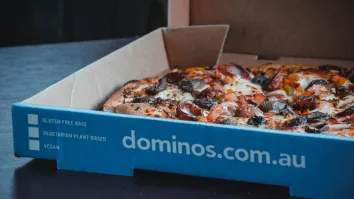Check out the latest QSR innovations everyone's buzzing about
By Lorelle FrazerFrom hearing impaired employees serving customers to tables that recharge diners’ smartphones – there is huge potential for QSR franchises to be at the cutting edge of socially responsible and technological innovations.
Socially responsible Thailand QSR innovation
One of the best innovations I've seen of late is taking place in KFC in Thailand.
What I like about this innovation in particular is the corporate social responsibility element, which lies close to the heart of the Griffith Business School.
As reported in the Bangkok Post, 32 of the 45 staff employed in KFC's Times Square store on Sukhumvit Road in Thailand, are hearing impaired.
To cater for their employees KFC have adapted their systems and equipment to ensure the staff receive the support they require, while also enabling the smooth service of customers.
Adaptations include place cards on the counter showing customers how to order, specialised equipment such as registers with display screens so customers can see order and a special management system so hearing impaired staff have the same opportunities as any employee to advance into management roles.
Hiring hearing impaired people is part of KFC's corporate social responsibility program, and the franchise has plans to increase the number of hearing impaired staff to more than 100 across three stores.
Although anti-discrimination laws require companies to employ people with disabilities, I’m yet to hear of any similar case where a franchise operator has adopted an all-inclusive approach in such a big way.
With the continuous advancements in technology there’s no reason why more franchises can’t employ a similar strategy, particularly in the QSR industry.
QSR pilots technological innovation for value-add service
Another innovation QSRs could adopt to provide a value-add service and point of difference from competitors is a strategy currently being trialled by McDonald’s Finland.
As reported in Good News Finland, McDonald’s is trialling free wireless mobile charging stations in some European stores.
Using the wireless technology customers can charge their smartphones while they eat in-store simply by placing their phones on a designated section of the table.
This service could be particularly attractive to international travellers who may find it more difficult to keep their devices charged than when at home.
QSR crowd sources marketing success
Another great innovation coming out of McDonald’s, this time from Germany is a crowdsourcing ‘Make Your Own Burger’ campaign.
Started in 2011, the competition provided customers with the opportunity to design their own burger online from more than 70 ingredients including some traditional German foods not currently available in their menu.
People could then invite their friends to vote for their burger creation, with the winning burgers being sold across the country at the end of the promotional period.
Tens of thousands of burgers were created in the first week, even before a dollar had been spent on media advertising, and over the six months of the campaign the website received seven million page impressions.
The campaign was so successful, (in fact the most successful campaign for McDonald’s Germany ever), it was run again in 2012 with an increase of more than 280% in the number of burgers created.
The campaign demonstrates how effective crowdsourcing can be when executed well, and provides food for thought for other QSRs.
As technology continues to develop the possibilities for innovation and corporate social responsibility for QSRs are endless. With competition ever-increasing it makes good business and social sense for QSRs to consider similar strategies and unique value adds to set their brand ahead of the pack.
























